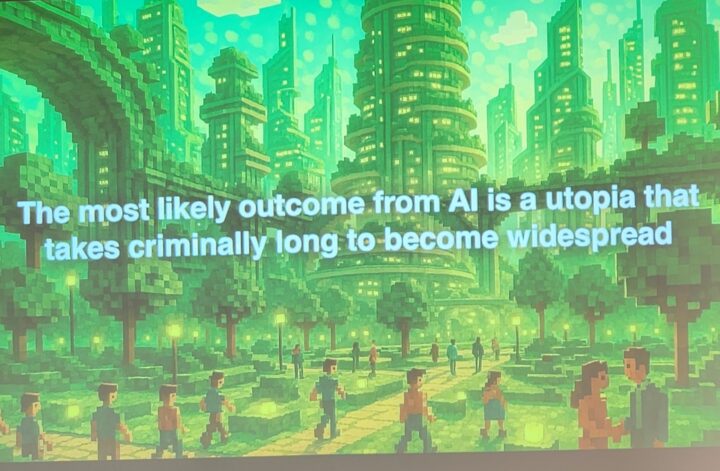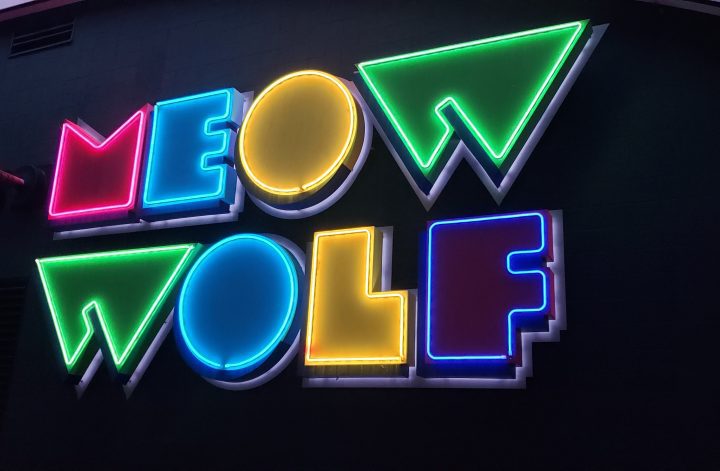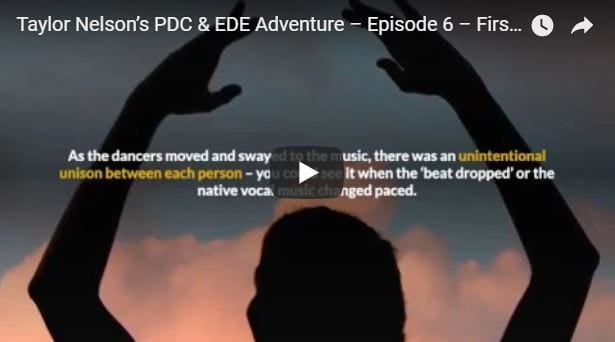I went to the Capital Factory in downtown Austin for a thought-provoking keynote titled “(Un)employment in the Age of AI.” Part of The Age of AI series — a monthly event known for sparking deep conversations and big questions — this talk by Oliver Emberton explored how artificial intelligence is transforming the very meaning of work.
The premise was bold yet disarmingly simple: AI isn’t here to take your job — it’s here to take everyone’s jobs. But rather than deliver a doomsday narrative, Emberton offered a surprisingly optimistic vision of how automation and intelligence could reshape society for the better, if we choose to guide it responsibly.
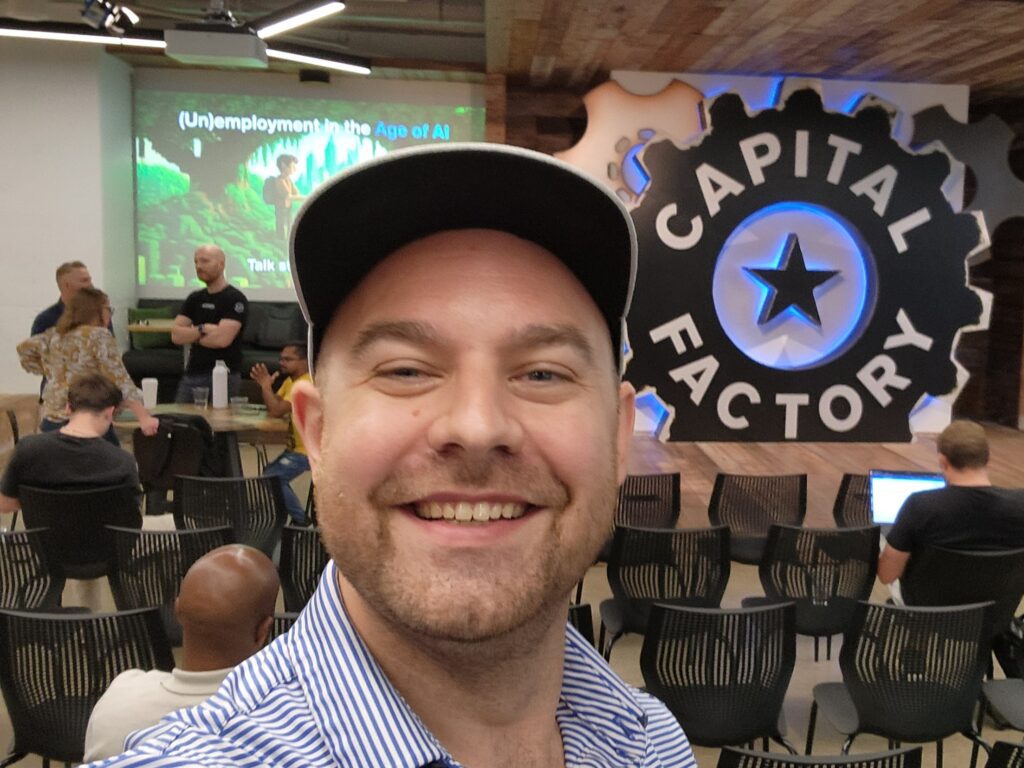
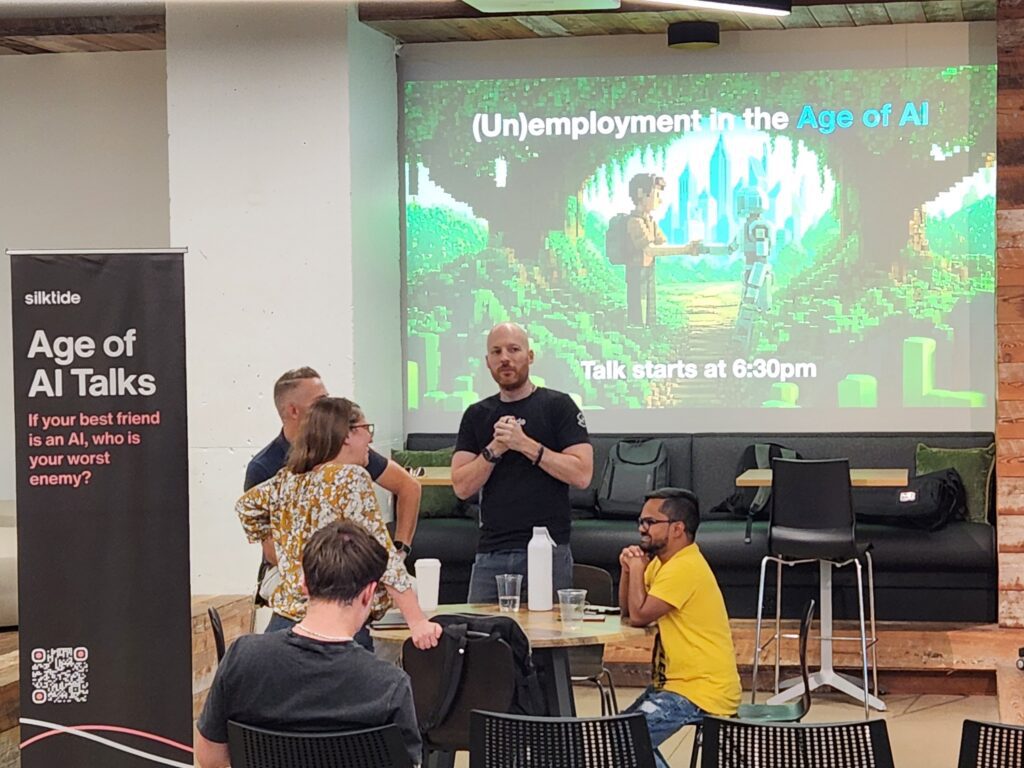
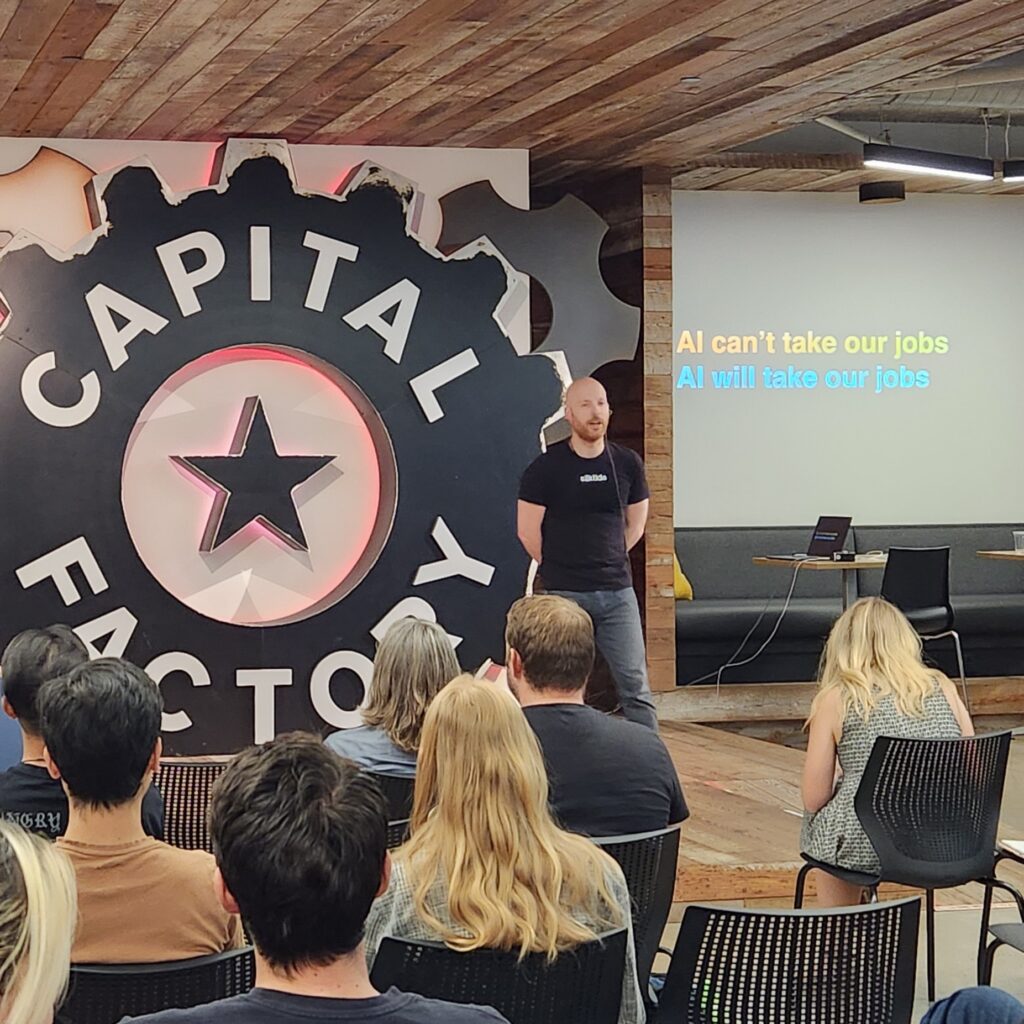
The Receding Island of Human Exceptionalism
Emberton began with a vivid metaphor — the receding island of human exceptionalism. As technology, robotics, and AI advance, the areas once thought to be uniquely human keep shrinking. He referenced milestones like machines beating world champions at chess, writing novels, robots performing acrobatics, and even passing the Turing test. Today, AI can recognize speech, interpret images, and understand emotion with a fluency that once seemed impossible.
Yet despite these breakthroughs, there remain islands of human distinctiveness — traits that continue to set us apart. Emberton highlighted continuous learning, total autonomy, self-improvement, scientific discovery, and nuanced judgment as the enduring frontiers of human capability. These, he argued, are not challenges to fear losing, but opportunities to redefine what makes us human in a world where machines increasingly share our abilities.
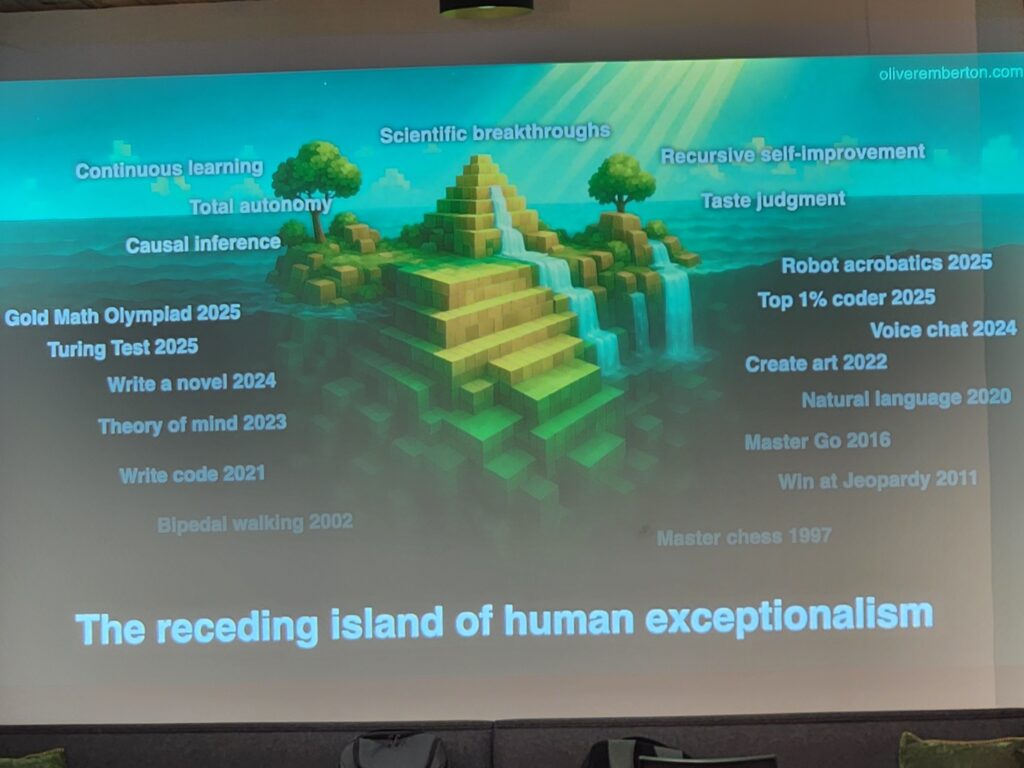
A New Relationship Between Work, Purpose, and AI
One of the most intriguing points of the evening was Emberton’s discussion of AI’s paradoxical role in job creation and elimination. As he explained, AI will increase the demand for jobs — but also reduce the need for them. Through the lens of a loosely interpreted universal basic income (UBI) model, he suggested that automation could free large parts of the population from traditional work, allowing people to opt in to creative, personal, or community-driven pursuits rather than labor out of necessity.
In this future, some may choose to channel their energy into art, innovation, family life, or self-expression — while others continue to build expertise in specialized or technical fields. The key, Emberton emphasized, is that work will become more optional, flexible, and human-driven rather than obligatory.
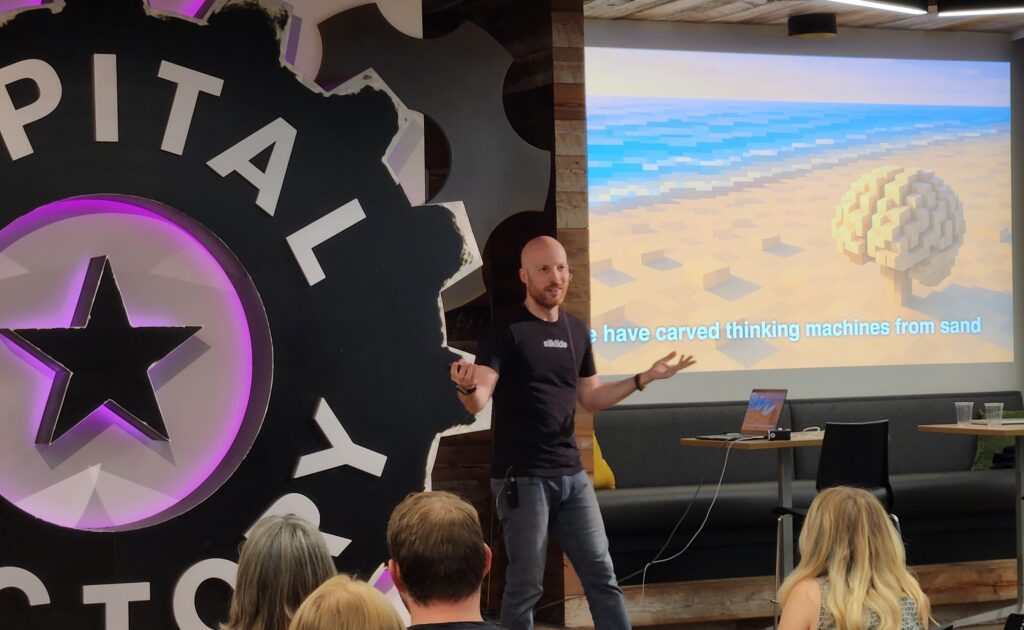
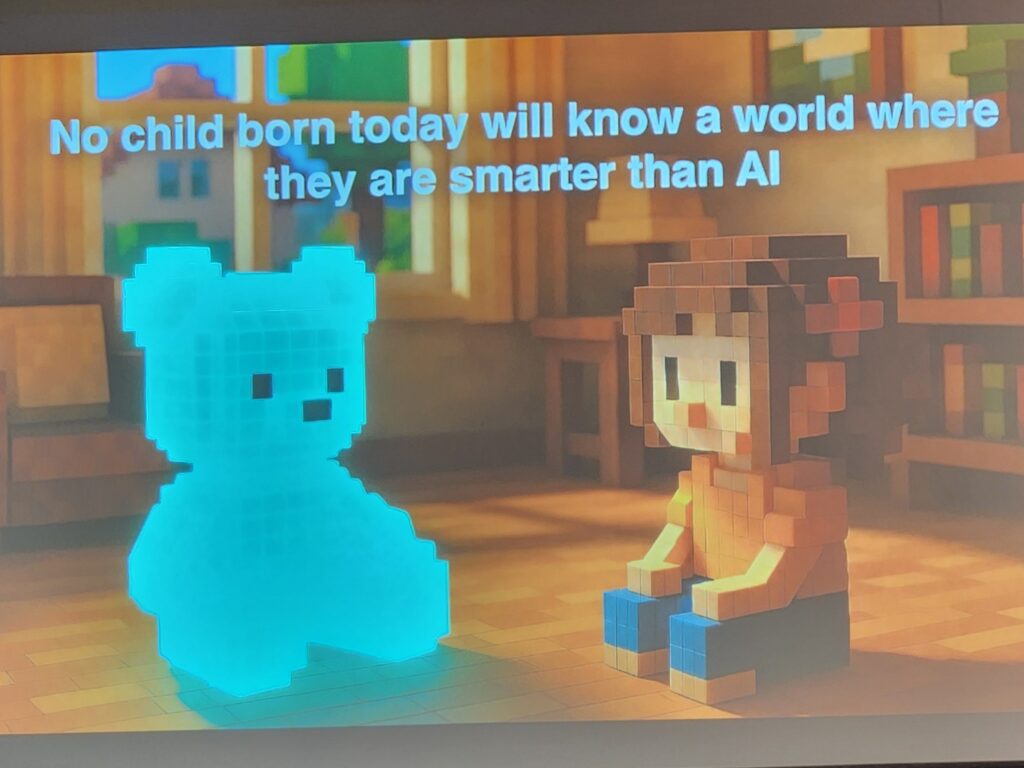
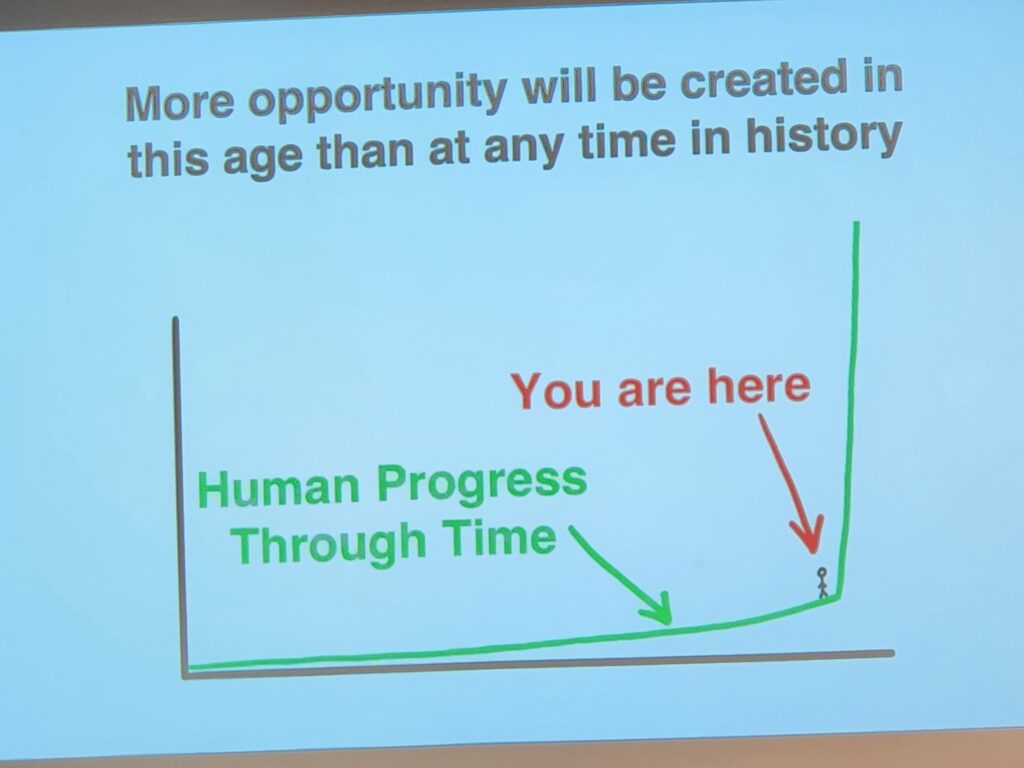
Evolving Jobs and Enduring Human Roles
Emberton categorized how different kinds of work may evolve in the coming decades.
- Expanded responsibility: Many professions, like in healthcare, will experience role expansion. Nurses, doctors, and surgeons may take on broader responsibilities as AI handles diagnostics, scheduling, or data management.
- Risk reduction: Dangerous or high-risk jobs, such as those in warfare, oil and gas, or heavy construction, are likely to be automated or use robotics first due to the value of human safety.
- Interpersonal endurance: Human-centered roles like teaching, sales, public speaking, and counseling will endure because they rely on empathy, connection, and social intuition.
- Visionary and creative work: Architects, engineers, directors, and artists will continue to thrive, though their tasks and workflows may be deeply augmented by AI tools.
- Novel human pursuits: Creative expression, like painting, music, athletics, and performances, will always retain a premium on human authenticity, even as machines learn to mimic them.
Emberton also predicted a new category of work emerging around AI coordination — where people manage, guide, and optimize AI systems as part of their daily tasks. In other words, working with AI may soon be as fundamental as using a computer or smartphone.
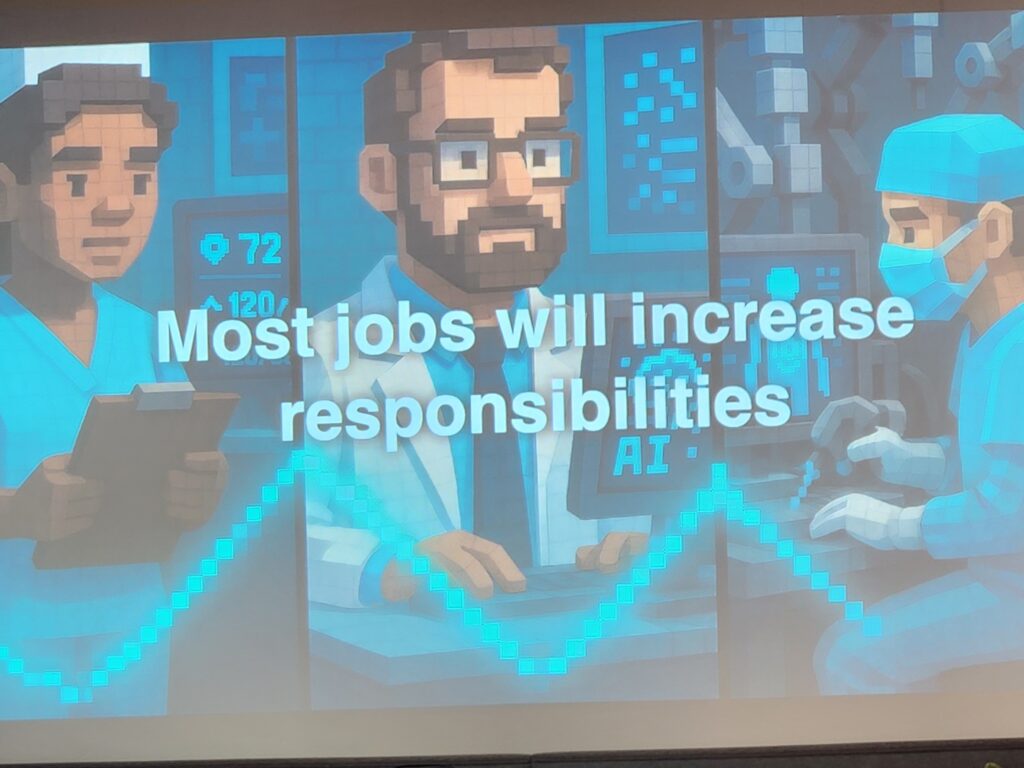
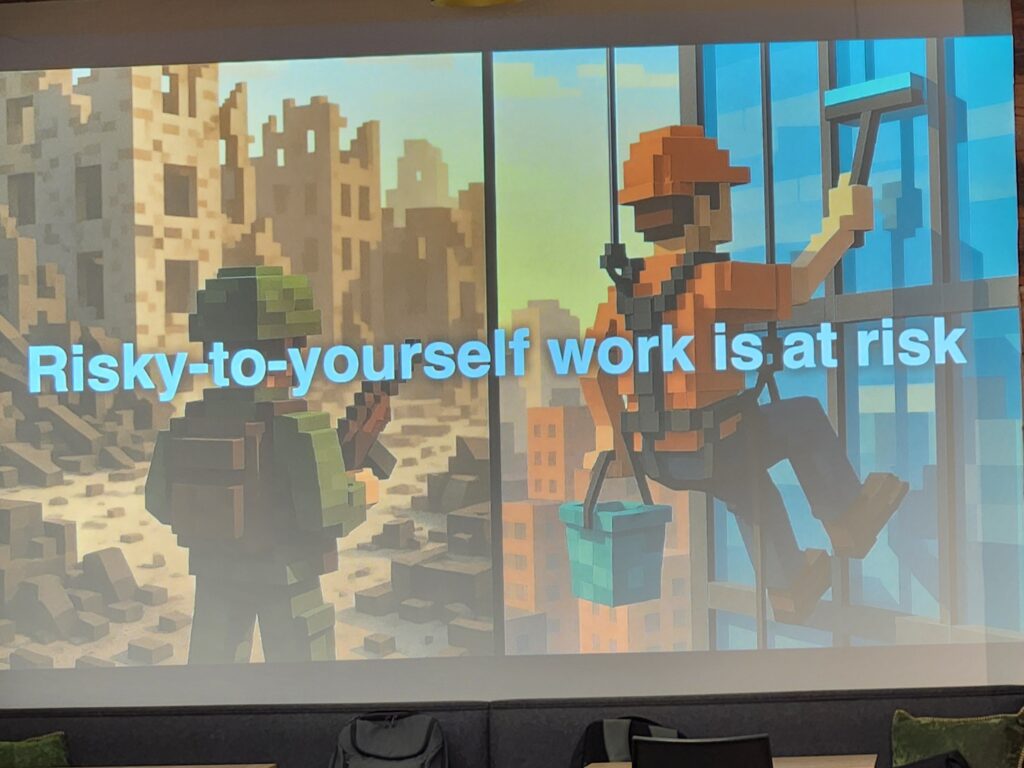
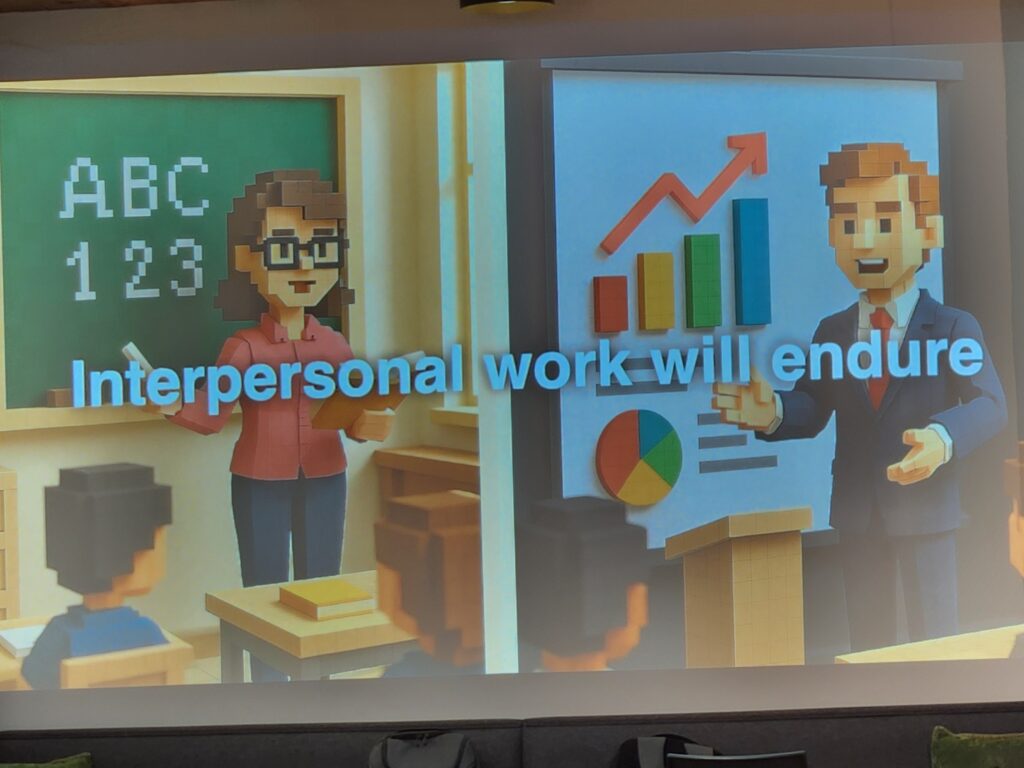
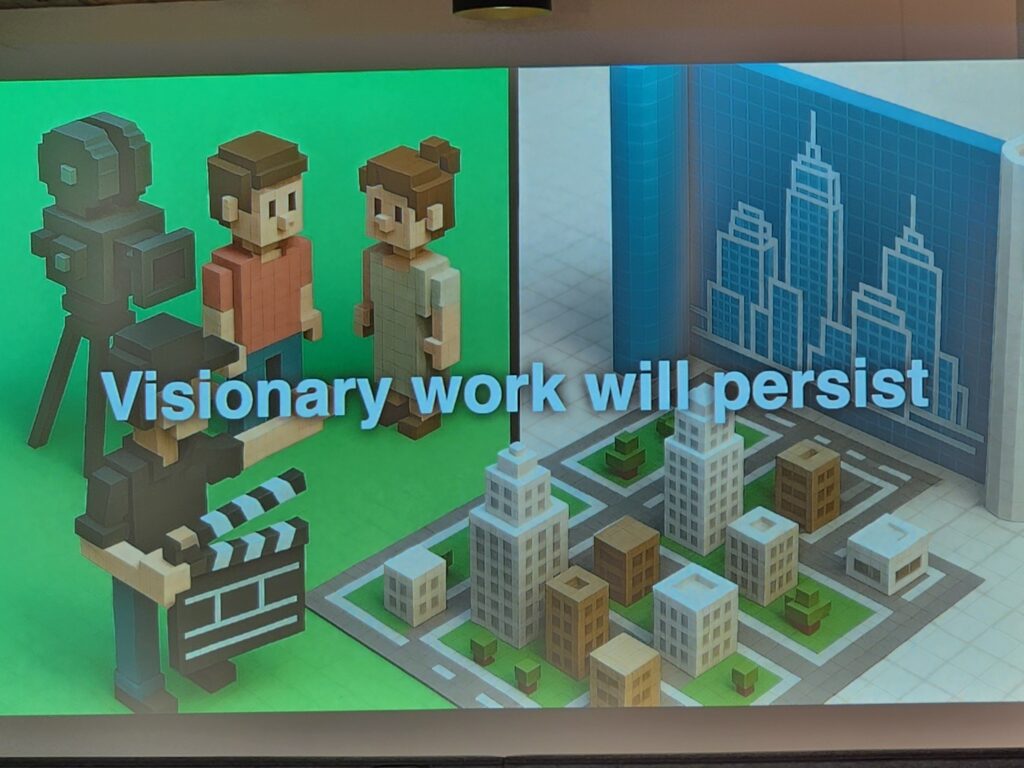
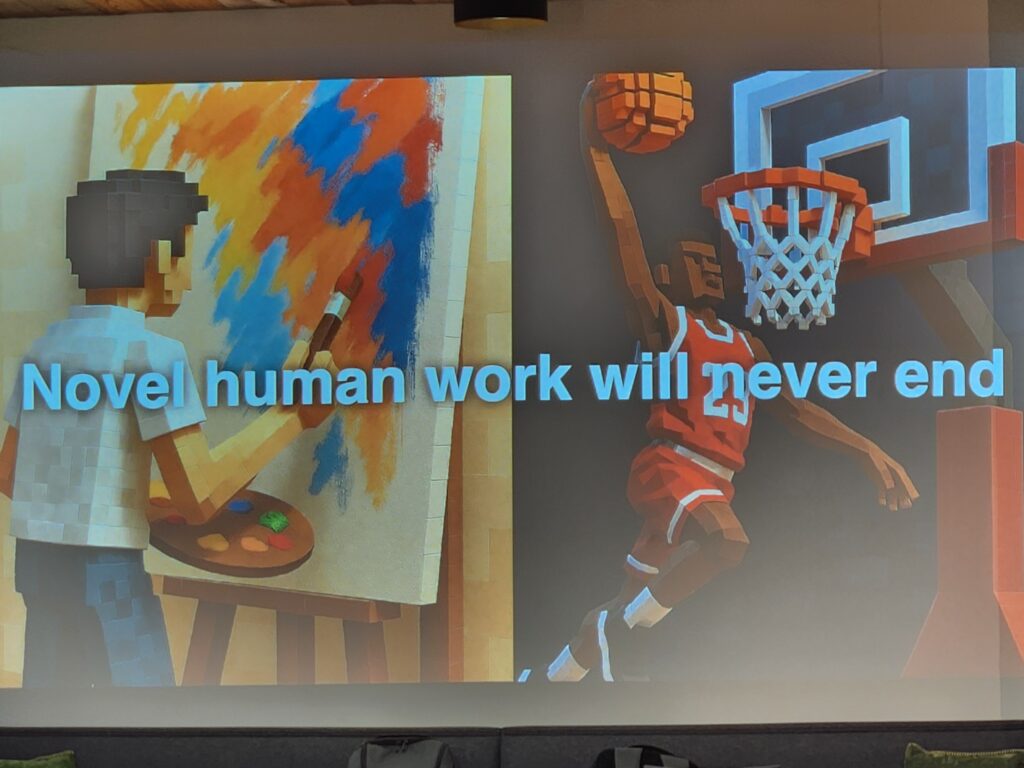
The Collective Future of Intelligence
Looking ahead, Emberton described an upcoming shift from one-on-one AI interactions to AI collectives — networks of intelligent systems working together and even communicating with one another. This evolution could drive exponential growth in how problems are solved, discoveries are made, and innovations are scaled.
He left the audience with a clear message: Those who learn to unlock AI’s potential will benefit from its upside and be protected from its downside. Understanding and embracing these tools, rather than resisting them, will be essential for navigating the future of work and society.
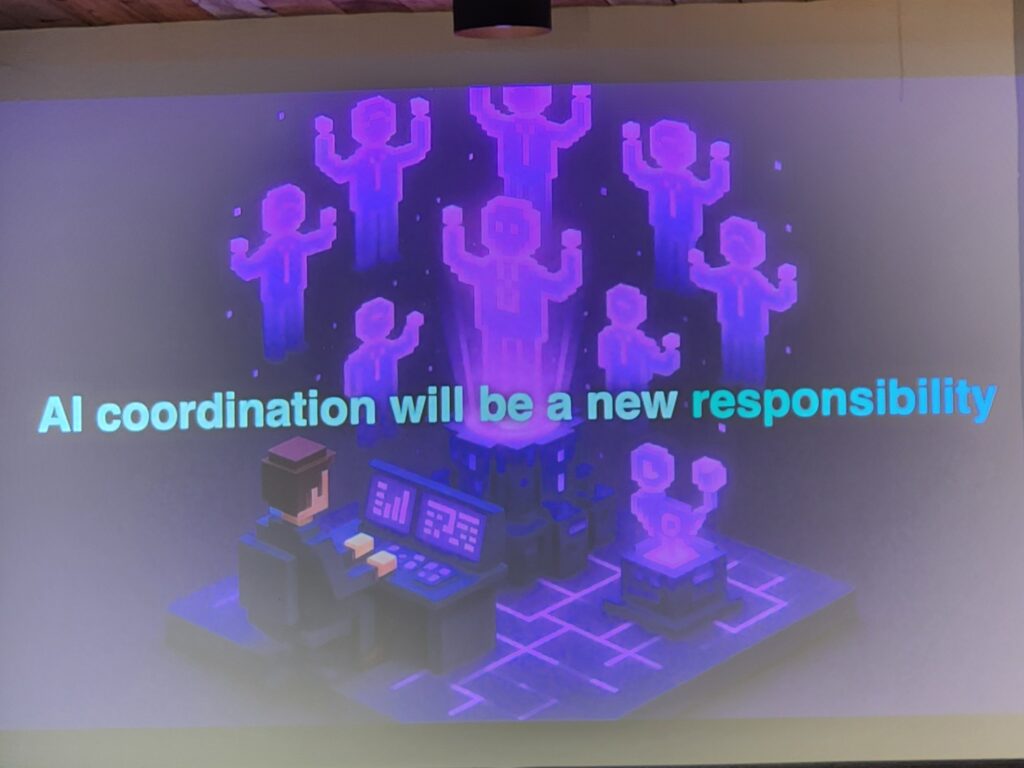
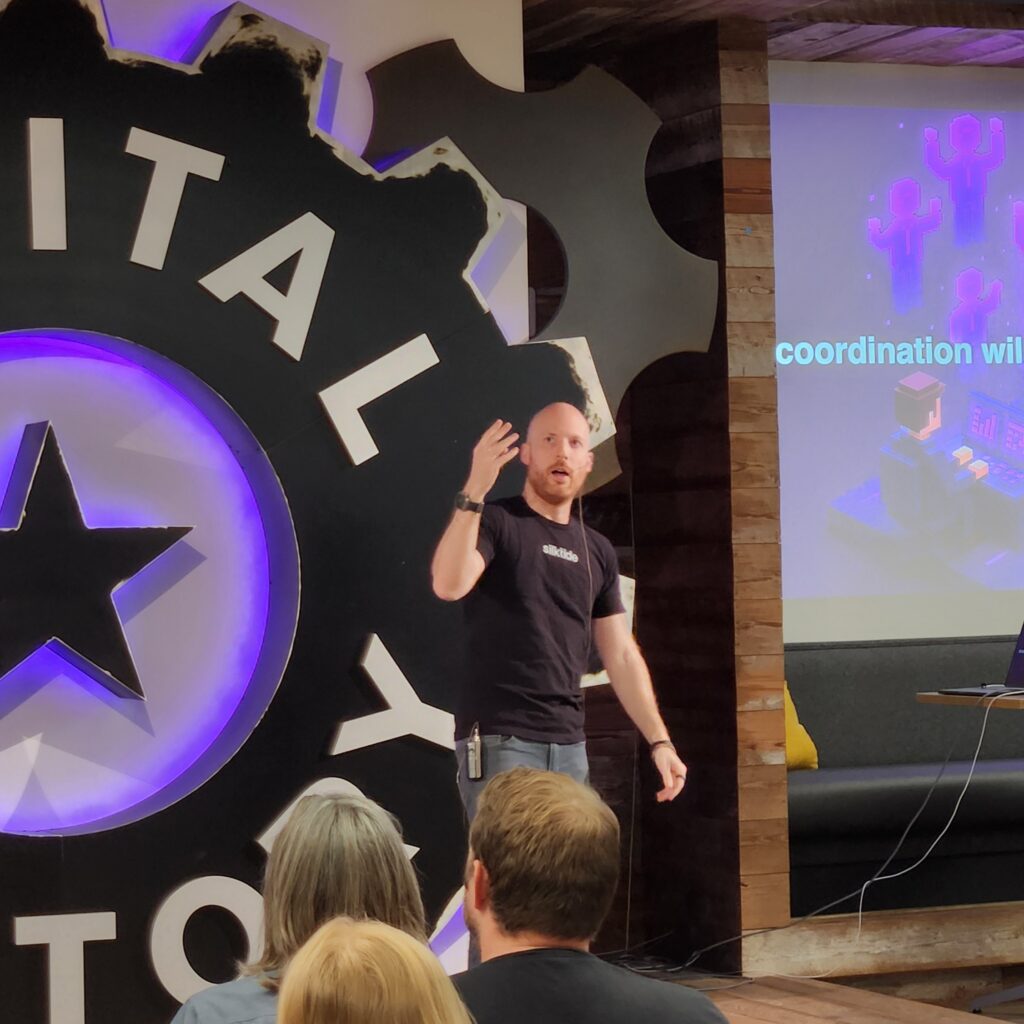
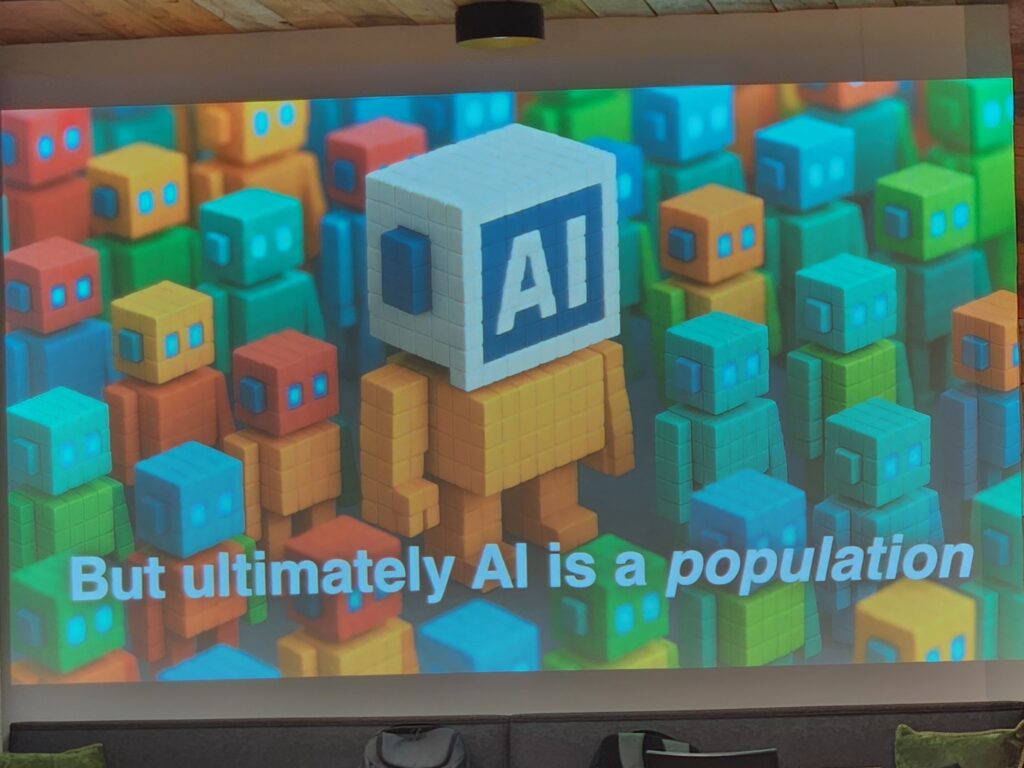
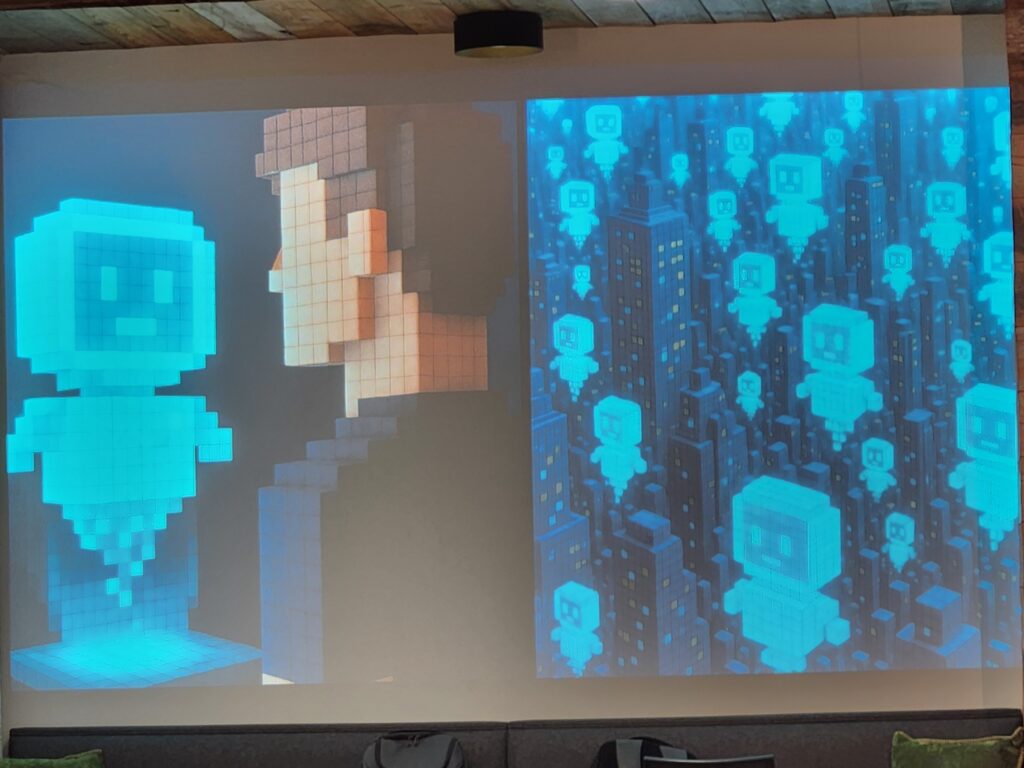
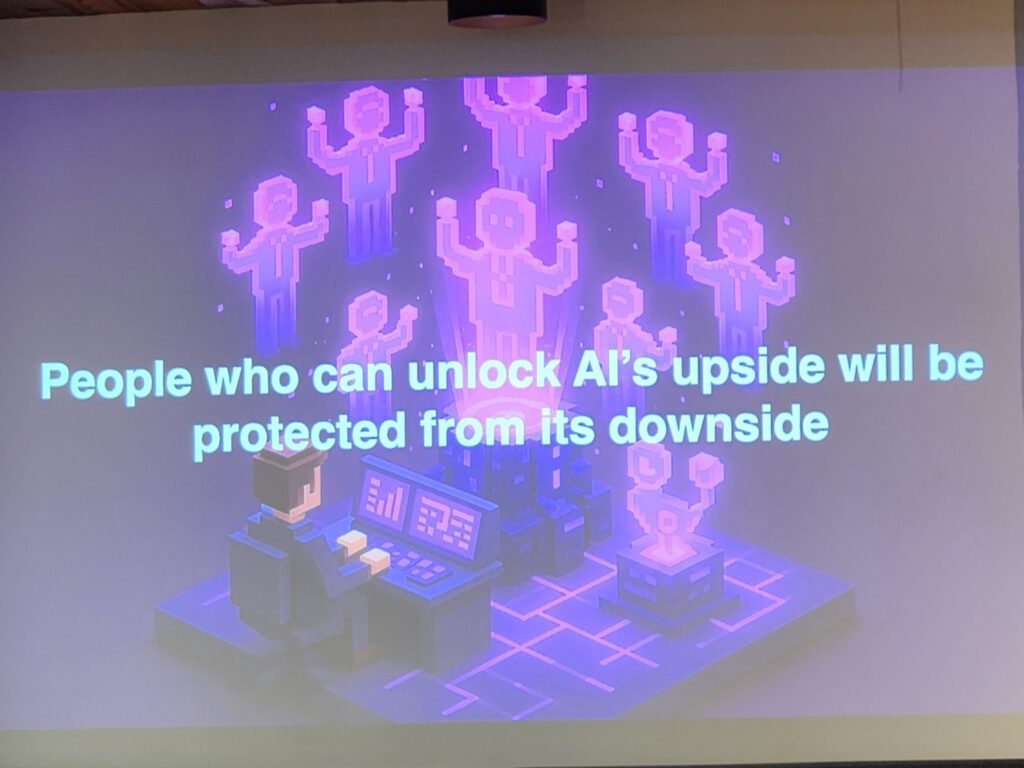
Closing Reflections
As the evening wrapped up, I left feeling both grounded and inspired. Emberton’s optimism wasn’t naïve — it was rooted in the belief that human creativity, compassion, and curiosity remain our greatest assets.
Yes, the island of human exceptionalism may be receding — but perhaps what lies beyond the shore isn’t loss, but evolution. If we approach AI not as a rival, but as a collaborator, the future of work could be one defined not by scarcity, but by possibility.
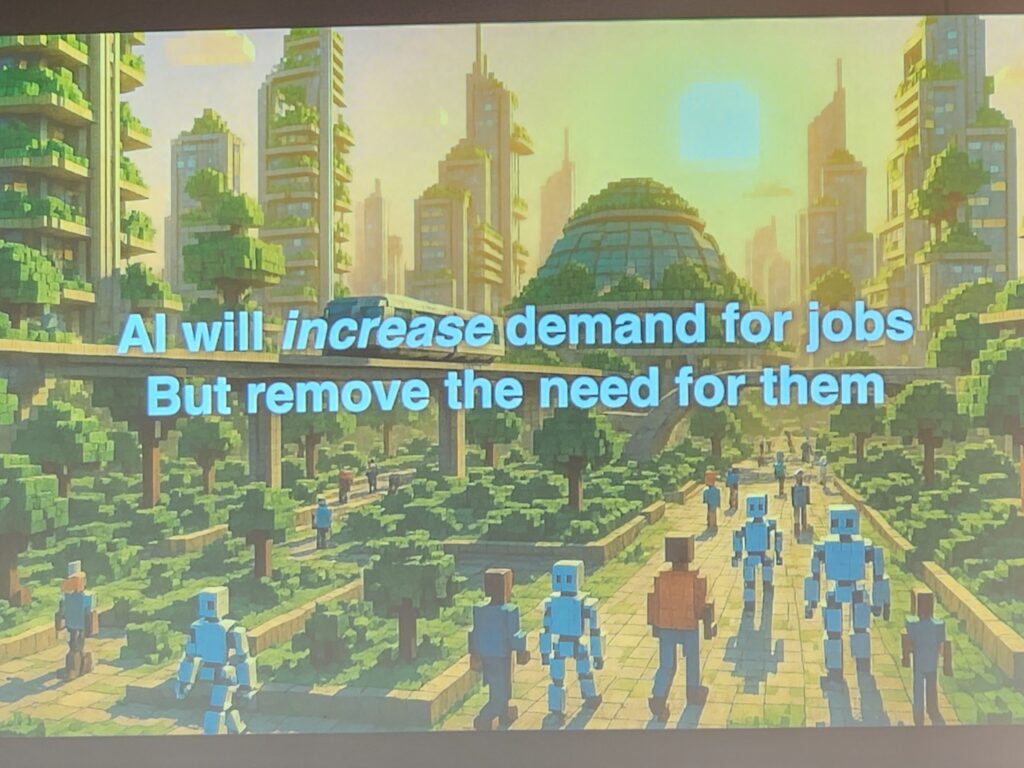
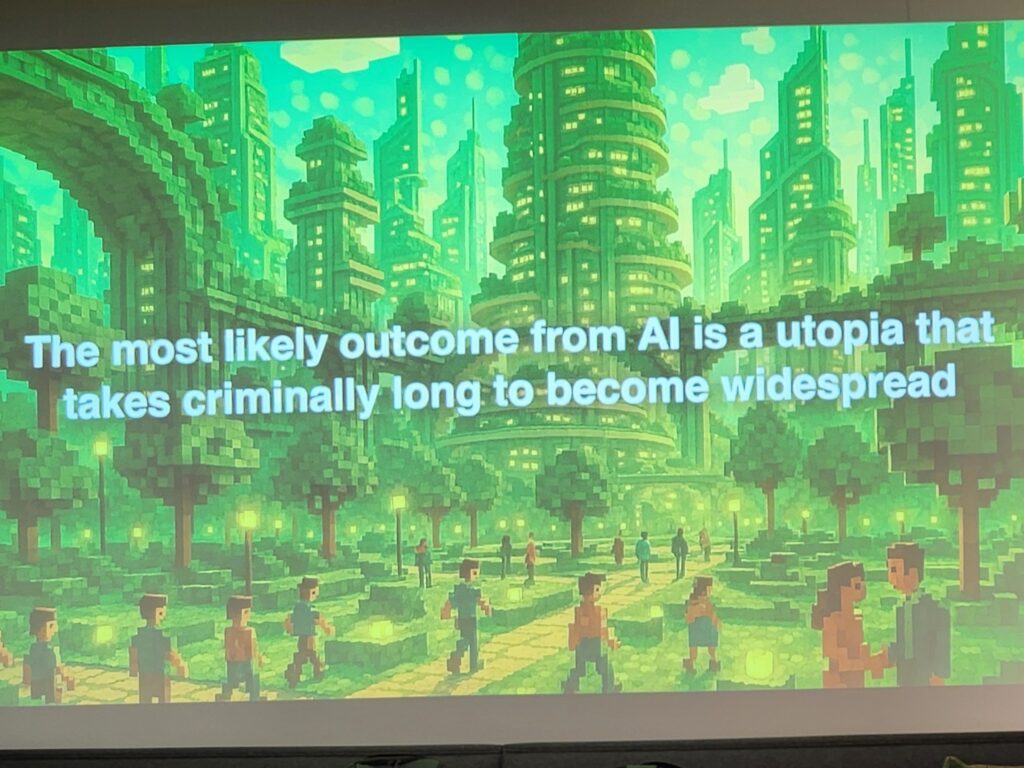
*Content was generated with AI based on my notes and direction, then edited and refined by me for accuracy.

